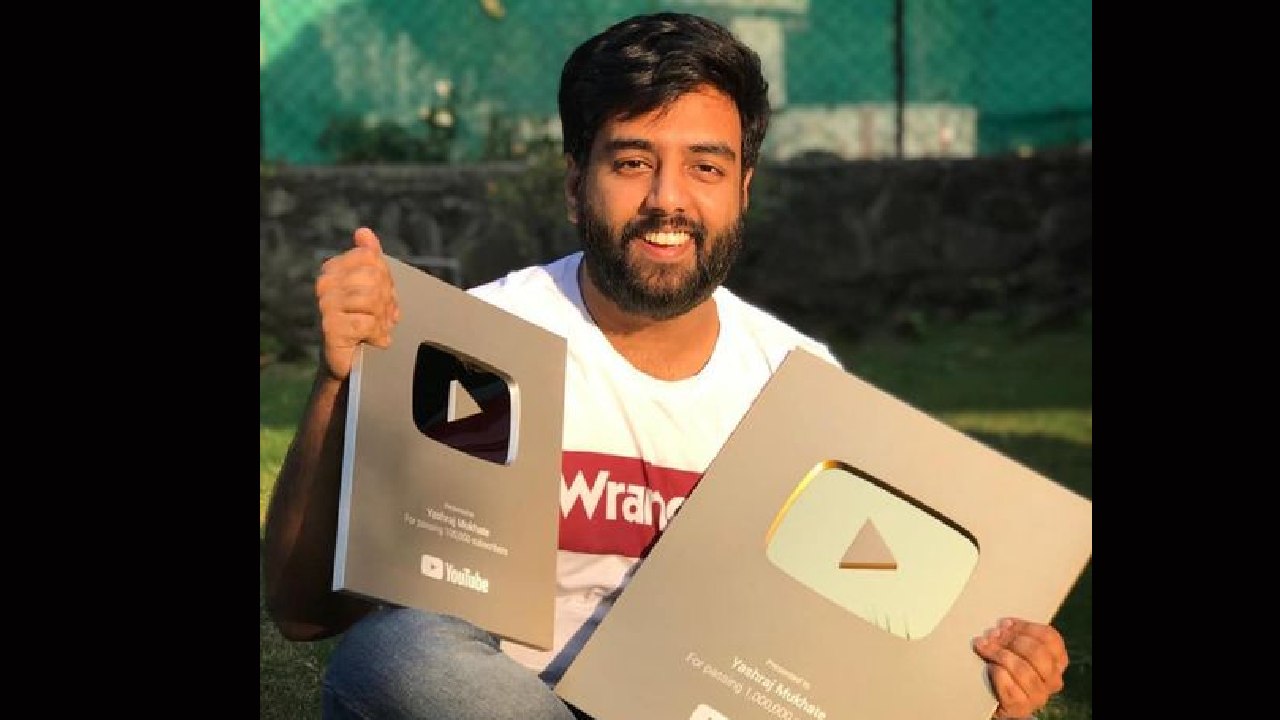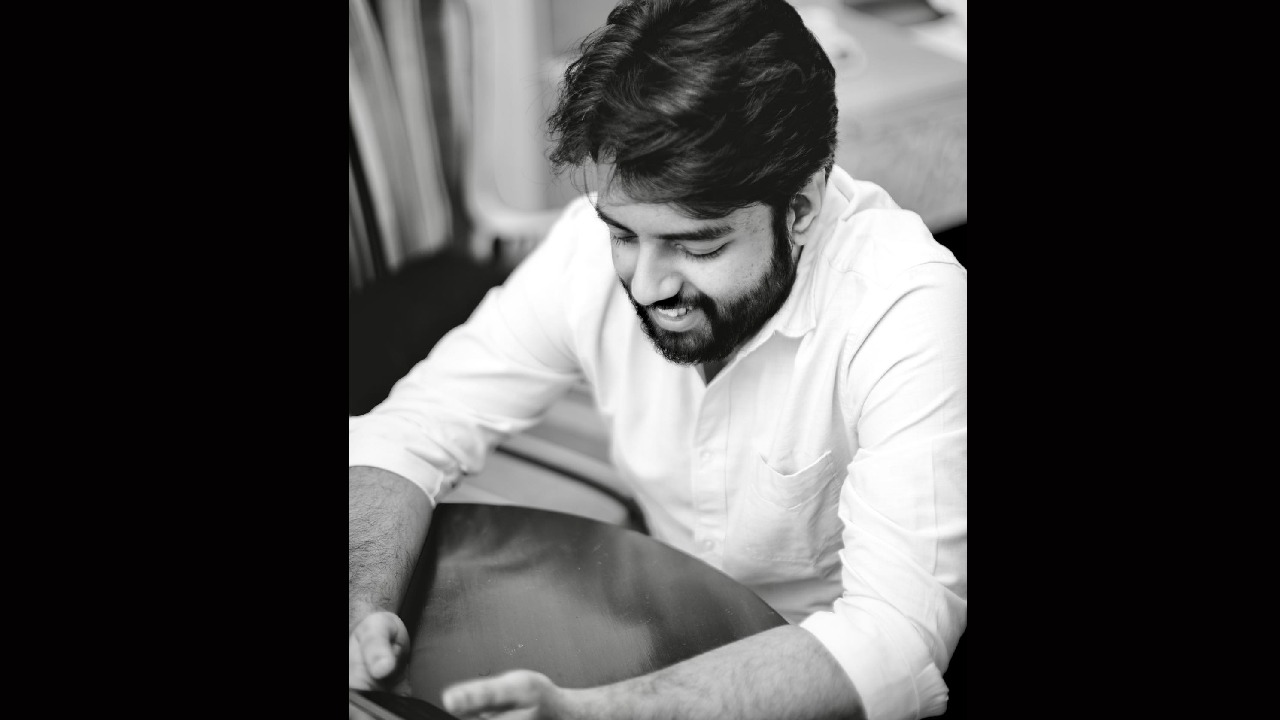Career in music production: tips to excel by Yashraj Mukhate


Yashraj Mukhate burst onto the social media scene overnight with his comical musical twist on a line taken from a hit TV show Saath Nibhaana Saathiya. Ever since then he has been winning hearts with his work with multiple compositions going viral. But what about the man behind these viral compositions?
In an exclusive interview with The Telegraph Online Edugraph, Yashraj tells us about where he started, how he got into the career and what his future plans are.
Actually this came to me from my dad, as he always had this inclination towards music and following the same, from the age of 3, I started singing and playing the keyboard and that is when my parents realised that I am also inclined towards music. After that they brought me more musical instruments so that I can learn. As I grew up I started listening to other songs as well. Automatically in my mind I used to dissect multiple tracks by listening to the base and drums of different songs separately. Soon with time, I understood how music is made and what software is used, by the time the internet came in I started learning about the technical even more and that is how I started doing it professionally after a point.
2. What did you study and did you always plan to get into music production?
As a student I was pretty much above average. After 10th, everyone around me either opted for engineering or medical, so naturally I also opted for engineering. I pursued a Polytechnic diploma course in Aurangabad and then I moved to Pune for 3 years for my degree course in electronics and telecommunication. I particularly chose this field because I thought it was the closest to music in general. By that time I had also started producing music, so it was closer to my field. This really helped me later. I wanted to opt for a sound engineering, but unfortunately it wasn't available anywhere at that time and I thought that this would be the next better option.
3. Have you ever had to handle a difficult conflict in your career? What did you learn from it?
I did not have much exposure during those days. Before I went viral I used to handle a lot of freelance projects and make background scores for individual short film makers. It gave me ample time to learn.
After the video went viral, I have started working so much that my learning process has greatly slowed down. I believe this is the most stressful part of my career because I know that this is not my full potential and if I learn and put more time into it I can actually do much better. However, I try my best to make sure that I take out sometime during the week to learn more. Whenever I get time I do some online courses in between along with watching YouTube videos to improve my craft.

4. You mentioned you learn more from online courses and Youtube channels. Could you name a few such channels that you follow?
Some good Youtube channels that I follow are: Recording Revolution and Inthemix. In addition, I work on a software called Logic Pro X. It is one of the most popular softwares in the industry and a very good place to start learning. I believe if the young generations start learning while using it, they’ll be able to learn faster.
I have also done courses from the people who are already dominating the industry. A recent course which I completed was by Charlie Puth on studio.com. It was an excellent experience as a student because he actually makes music live and uncut. I feel this would give students exposure to what he is doing with the software, what kind of songs he uses, and how simple ideas can be converted into a complete song.
5. What do you think is the most important aspect of music production?
I think for an individual artist it is important to get a sound that would stand out from what is already there in the market. As a music producer, I will specifically always want that and eventually when people listen to it they should be able to make out that it is produced by me. This strategy has helped me gain individuality and be seen. Yes, it definitely takes some time to discover your sound but once you have your USP in place you’ll be able to stay in the market for a longer period.
6. How can young creators find their individual sound?
Well, I believe it always starts with inspiration. This same thing happened to me. I also started with making covers. Finding and discovering your own sound is a long process. Once a person starts producing music and putting it out, they gradually realise what is the sound that attracts them the most. Once that happens, your own sound starts to emerge and as a creator, you need to hold on to that.

7. What are some marketing strategies you've found worked for you?
I think after my video went viral, I became very conscious about the fact that people should remember me, even after 2 years. After the first video, in terms of marketing, it was very easy for me because everyone knew my face and name. I believe I was always conscious about the fact that I have to keep my face in all my videos.
As a music producer, I can simply choose to put my track out without showing my face, but I felt it would not get any attention. So it was a conscious decision to include atleast a small watermark with my name and face in my videos in order to let people associate with my content. I believe this strategy really worked wonders for me. Also, in my case ‘Mukhate’ is the keyword which helps me stand out in the algorithm as no one in the industry has the same surname.
8. As a freelancer, what do you have to say about planning, scheduling and prioritising?
Actually it works the other way around for me and I start working when the deadline is coming close. I believe the last hour is when I work with full efficiency to finish my work. But the funny part is, I schedule things. I properly make a to-do-list to take off my stress. However, the process of thinking continues the entire day and I think my mind also works on my music when I’m asleep.
9. What practice do you think is most important for music producers to follow? Why?
A person looking forward to making a successful career in the field must have a diversified playlist. Speaking about myself, my playlist is like ‘Bhel’. I listen to Tamil, Kannada, Punjabi, Marathi, English songs and all genres. One should listen to a wide variety, which helps to develop both your taste and style of music.

10. Who do you derive your inspiration from? Who are some of your most favourite creators from the industry?
Amit Trivedi sir would always be at the top of the list, because listening to his albums has inspired me to make music. Apart from that, A.R Rahman, Pritam, and Anu Mallick sir are also my favourites. I would also like to mention some of the underrated creators who produce good music like: Ashwin Bhaskar and Siddharth Pandit who are extremely talented and have good sound.
11. What would you say are the three most important tips you would like to give to someone looking forward to making a successful career in the music production industry?
As new creators keep coming into the industry every single day, I think the first thing for a newcomer in such a time is to be your own self. Second thing is that a newcomer must consume content from all the sectors to have a basic understanding of what is happening around them. This helps them to create better content.And lastly, they should have a good understanding of the technicalities of being a digital music producer. For instance, having a good understanding of how Youtube works, using relevant hashtags and other strategies that one needs to follow to make it big on different social media platforms.
If your passion lies at the intersection of growing technology and the art of music creation, one of the many fascinating careers for you could be music production. As our expert Yashraj Mukhate says, while going viral may not always be in your own hands, once you recognise your own sound, you should follow it for success.
Interested in film production? Click here to know about the top 5 responsibilities of a film producer